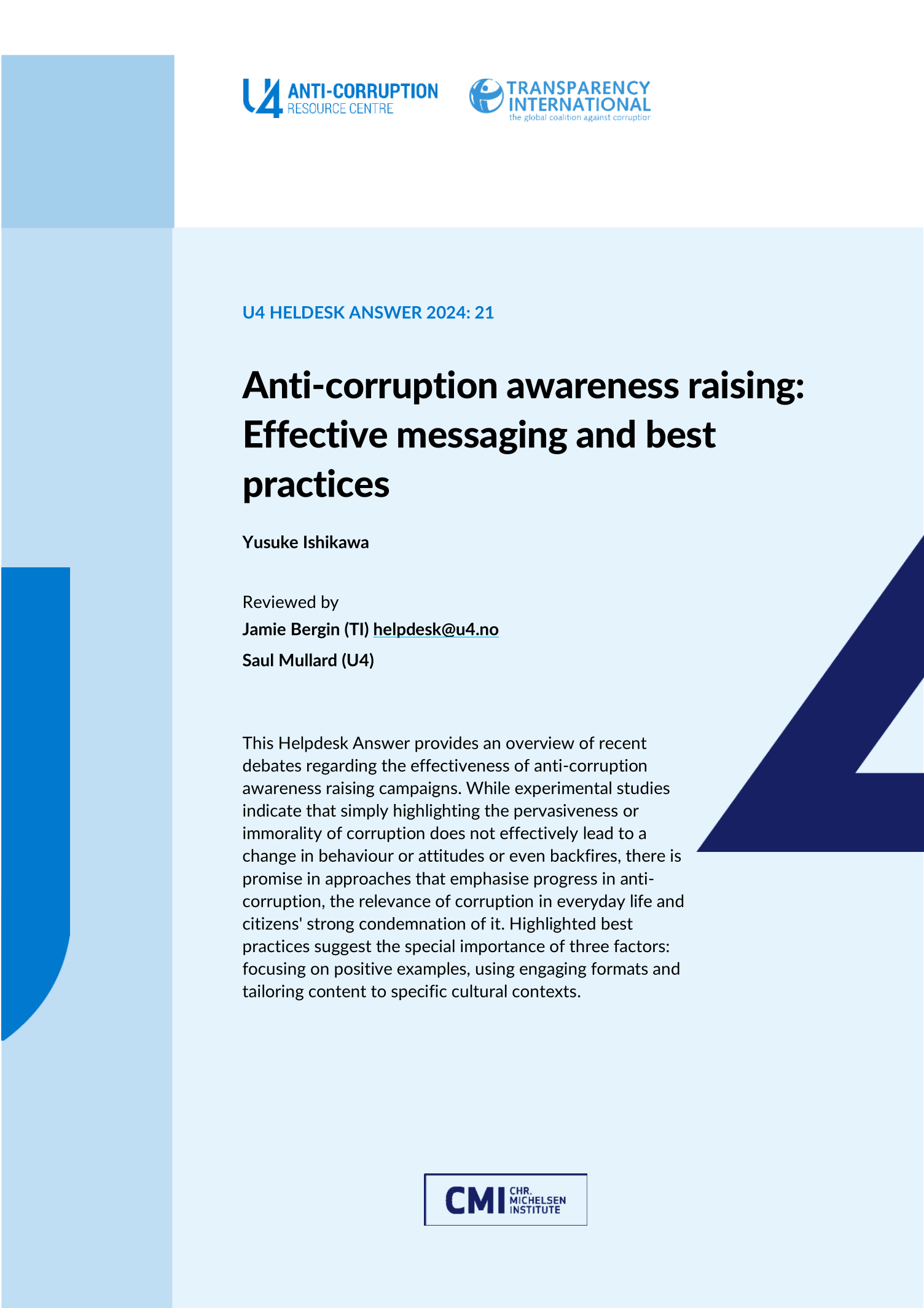Main points
- Various experimental studies indicate awareness raising messages emphasising the pervasiveness of corruption and its illegality or illegitimacy do not significantly reduce demands for and acceptance of bribes, increase reporting rates or alter attitudes towards (anti-)corruption.
- While a limited number of experimental studies suggest that messages emphasising corruption control may have positive effects, others caution against emphasising government led reforms, particularly when citizens have low confidence in government effectiveness.
- Some experimental studies suggest that messages emphasising the relevance of corruption in everyday life and citizens' strong condemnation of it can discourage citizens from bribing and encourage them to report corruption.
- The Integrity Icon initiative operating in several countries, which employs a ‘naming and faming’ approach, attests to the importance of emphasising positive trends to curb corruption.
- Video campaigns in Greece and Ukraine showcase the effectiveness of anti-corruption awareness campaigns that reach targets in an entertaining way.
- Tilapia Da Cartoonist, a meme-based anti-corruption campaign in Ghana, suggests that contextualised awareness raising campaigns can effectively and attractively convey campaigners’ messages about (anti-)corruption to a local audience.



